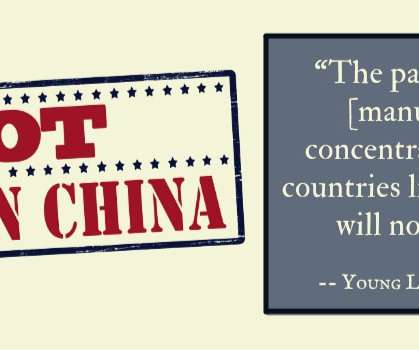How Many Slaves Are in Your Supply Chain?
Talking Logistics
MAY 8, 2013
The collapse of the garment factory in Bangladesh last week , which killed at least 705 workers and injured thousands of others, has put a spotlight on a problem that plagues many supply chains: the use of slave labor. In response, federal and state governments are taking action to drive down the use of slave labor in supply chains.
















Let's personalize your content